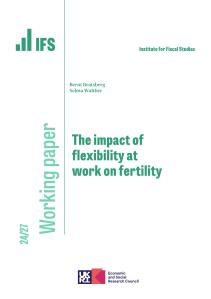
In this episode, we take a close look at how the impact of coronavirus on communities is shaped by ethnic, gender and demographic inequalities.
Listen now: Apple Podcasts | Spotify | YouTube | Acast | Google Podcasts | Stitcher | RSS
Wherever we look, it seems that inequalities are shaping people's experience of coronavirus and of the lockdown.
Ethnic minorities are significantly more likely to die from coronavirus than their white counterparts. Those in lower-paid jobs are more likely to be in a shut-down industry. The lockdown is widening the gender pay gap.
In this episode, we take a close look at how the impact of coronavirus on communities is shaped by ethnic, gender and demographic inequalities. We speak with Ross Warwick, a Research Economist at IFS specialising in international development, and Xiaowei Xu, a Senior Research Economist in the Income, Work and Welfare sector.
Related content
Host

Director
Paul has been the Director of the IFS since 2011. He is also currently visiting professor in the Department of Economics at University College London.
Participants

International Research Associate
Ross joined the IFS in 2016 and works in a couple of areas of IFS research.

Senior Research Economist
Xiaowei joined the IFS in 2018 and works in the Income, Work and Welfare sector.
Podcast details
- Publisher
- IFS
More from IFS
Understand this issue

Sure Start achieved its aims, then we threw it away
15 April 2024

Social mobility and wealth
12 December 2023

If you can’t see it, you can’t be it: role models influence female junior doctors’ choice of medical specialty
24 April 2024
Policy analysis

How do the last five years measure up on levelling up?
19 June 2024

How have the size and shape of the UK state changed?
9 June 2024

Size of the state has grown over this parliament and is likely to remain permanently bigger than pre-pandemic
9 June 2024
Academic research

Income inequality in Ireland, 1987–2019
28 June 2024

Components of the evolution of income inequality in Sweden, 1990–2021
28 June 2024

The impact of flexibility at work on fertility
11 June 2024